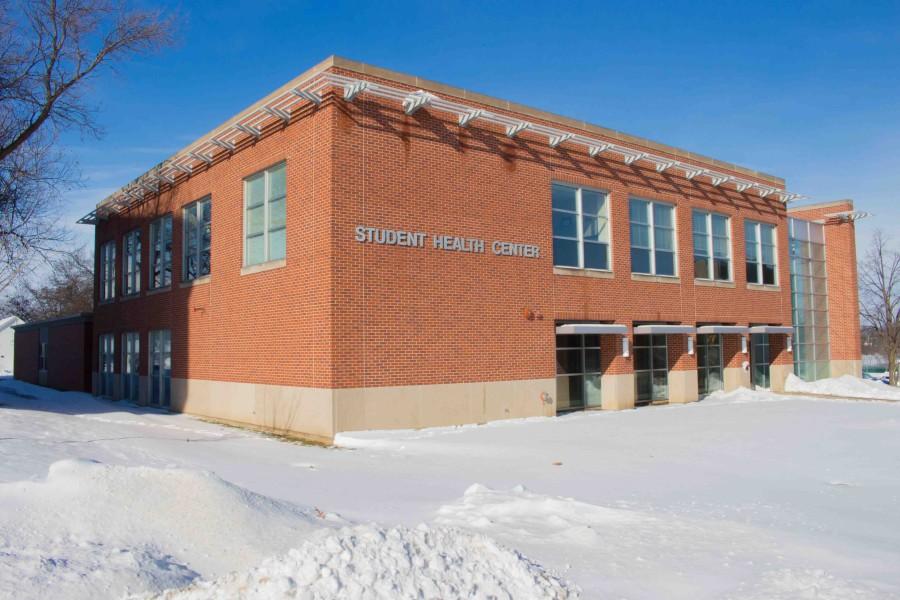Charges for mental health services proposed
Jan 28, 2016
The Student Health Center recently proposed billing students for psychiatric care, a service currently offered at no additional cost to students.
According to Shelley O’Connell, student health clinic director, the clinic must create a position for an additional psychiatric nurse practitioner to respond to the increase of students on mental health medications seeking services.
“We are limited with our part-time psychiatrist and a psychiatric nurse practitioner,” O’Connell said. “We are trying to provide care with a limited number of staff and appointments available.”
Last semester, the university did have a psychiatrist on staff. However, according to Northern Iowa Student Government president, Katie Evans, the psychiatrist was only on campus once a week and is retiring.
Evans also noted that most staff at the clinic are overscheduled and addressing issues out of their job description because the clinic is understaffed.
“By having two full time psychiatric nurse practitioners, we will be able to meet the students’ needs in a quicker manner and allow for emergency visits on a daily basis,” O’Connell said.
According to Evans, hiring additional staff is not feasible considering their current budget. Funding for the Counseling Center currently comes from the General Education Fund, a mixture of state appropriation and tuition. Meanwhile, the costs of counseling and health services come from the mandatory health fee.
Other solutions have been discussed, such as an increase in the mandatory health fee, which is paid by all students taking more than five credit hours. According to O’Connell, this increase would cost every student $25-$35 more each year. The mandatory health fee totaled approximately $115 this year.
According to Evans, a mandatory health fee increase would take up to two years if approved.
O’Connell said UNI is not unique among regent universities in the state, as both Iowa State University and the University of Iowa bill students for psychiatric services and have been doing so for over 10 years.
According to O’Connell, psychiatric care is considered a service that goes beyond most student health clinics covered by the mandatory health fee. O’Connell explained that pinpointing the exact end cost for students is difficult. The fees for services at the clinic are set according to the typical billing in the local area.
“The exact amounts of the fees and what an insurance company pays is different depending upon the service provided and the contract that we have with each insurance company,” O’Connell said.
Therefore, the student’s portion would depend upon their copay amounts determined by their health insurance company.
Cece Hawbaker, freshman business major, is not surprised about the timing of the proposal, as she believes more students are realizing that those around them may need more help than they can give.
“It just makes me a little bit scared if someone does need that help and can’t afford that extra billing,” Hawbaker said. “So I can’t say that I would one-hundred percent support it [the proposal], but would also understand if it became a reality.”
Other options have also been discussed in regards to students seeking psychiatric services without health insurance.
Students may be encouraged to sign up for the Affordable Care Act, and additional assistance could potentially be presented to students by a fund through the UNI Foundation. Students may also work with mental health case managers to refer students to additional options in the community.
According to O’Connell, if the Student Health Center were to continue with the current services levels, the clinic may refer students to local psychiatric providers or their hometown community providers.
“I’m really torn about this fee because I can see both sides to it,” Evans said.
Evans said the student relations arm of NISG met last week and are writing a resolution on whether they support charging students for psychiatric care.
Evans feels that it is not the right time to charge students who may need psychiatric care, given two student suicides last semester. She would like to look toward a short-term solution.
“I do think that perhaps a better idea would be to raise the mandatory health fee across the boards, as these services are received by upwards of 500 unique students,” Evans said.








